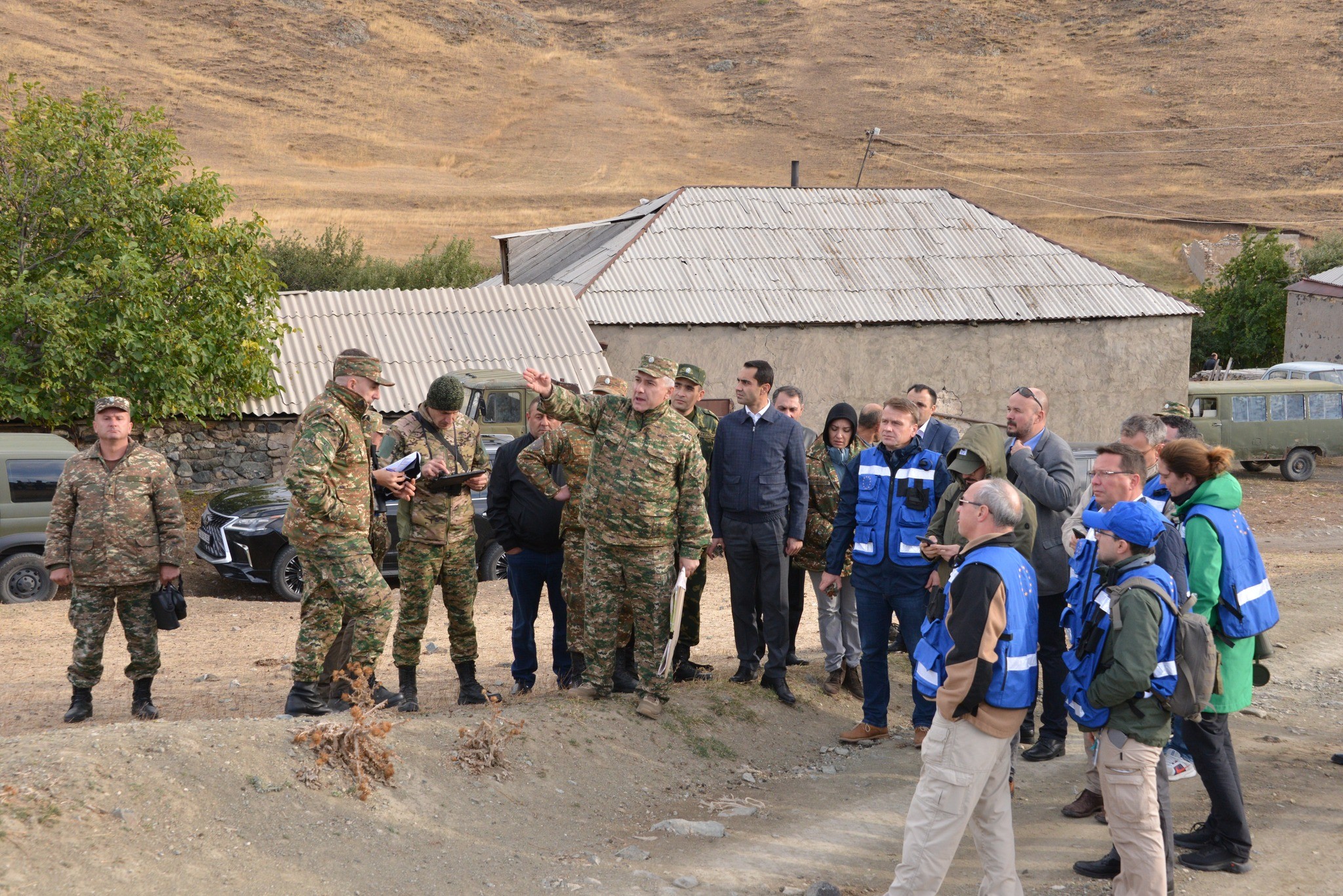
Following the end of the terms of a two-month mission in Armenia, the European Union has sent a team to potentially establish a longer-term civilian mission in Armenia.
The first mission consisted of 40 civilian personnel deployed to Armenia in late October, following the 13–14 September fighting between Armenia and Azerbaijan.
The EU deployed a transitional planning assistance team to Armenia on 19 December from its monitoring mission in Georgia to plan and prepare for a ‘possible civilian Common Security and Defence Policy mission in the country’.
Josep Borrell, the EU’s High Representative for foreign Affairs and Security Policy, stated on Monday that the first monitoring mission ‘has proved to be effective and contributed to building confidence in an unstable situation’.
‘Today we start a new phase in the EU’s engagement in the South Caucasus, with a transitional team that will prepare the ground for a possible longer-term EU mission in Armenia, with the ultimate goal of contributing to sustainable peace in the region’, he said.
In a 12 December meeting, the EU’s Foreign Affairs Council said that sending a permanent mission to Armenia would help ‘maintain the EU’s credibility as a facilitator of dialogue between Armenia and Azerbaijan’.
Armenian Prime Minister Nikol Pashinyan and Azerbaijani President Ilham Aliyev agreed to the first EU monitoring mission in a 6 October meeting in Prague mediated by EU Council President Charles Michel and French President Emmanuel Macron.
Aliyev was initially opposed to the deployment of the monitoring mission, but promised to cooperate with the mission ‘as far as it is concerned’ following the talks in Prague.
Although the mission only lasted several months and the EU’s special representative in the South Caucasus Toivo Klaar stated that it could not be extended, French Foreign Minister Catherine Colonna insisted that ‘this [EU] presence should continue as long as it is needed’.
‘This is our belief. This is also […] the desire of the Armenians’, Colonna said.
Following the September fighting, Armenia requested international support.
Prior to the end of their mission, the monitoring mission was spotted on the Armenian side of the border near the beginning of the Lachin Corridor, which has been closed for over a week. The closure of the only route connecting Nagorno-Karabakh with Armenia has caused shortages of food and medical supplies, leading to warnings of a ‘looming humanitarian crisis’.
[Read more on OC Media: Nagorno-Karabakh under siege]








